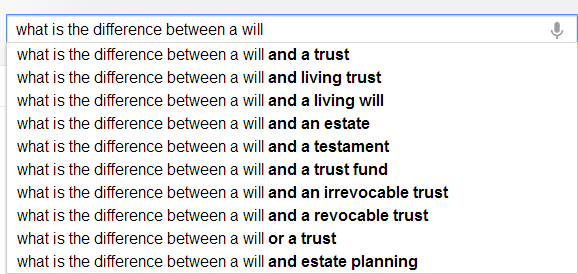Time for us to write another blog post together. Like the previous one, this is designed to bring you search engine traffic for a high ranking search term.
Last time, we wrote a post optimized for, “What to ask a ________ lawyer”. You filled in the blank with your practice area. Today, we’re going to write a post optimized for another oft searched phrase, “How to find a good __________ attorney”.
Remember to use this phrase in your title and body of your post. It’s also good to add the phrase to the post’s meta data. I use a wordpress plug-in for that.
For the content of the post, I suggest providing two basic recommendations for finding a lawyer in your practice area:
(1) Referrals. Tell readers to ask someone they trust for a referral. This could be another lawyer, an insurance agent, accountant, doctor, business owner, or other professional. It could also be someone who might have hired an attorney in your field. Provide a few questions to ask about the attorney, especially why they recommend them.
Now, you’re probably thinking, “why suggest that they ask people for a referral that might lead the visitor to another attorney”? Because it’s good advice. Because your post is providing objective information prospective clients need to know. Because when someone reads this, they are on your site, where they can see what you do and all of the reasons why they should choose you. And because this post is what brings prospects to your site who might otherwise not find you.
Add some criteria for selecting an attorney in your field, referred or otherwise. Provide questions to ask that attorney, and things to look for on their site, i.e., background, and so forth. See my previous post for recommendations.
(2) Search. Visitors are on your site most likely because of a search. So, endorse what they did to get there by providing a list of additional search terms for lawyers in your practice area.
Again, being helpful.
Might visitors take those terms and go find other attorneys? Yes. But they might do that anyway. They also might see that you are helpful and confident and know what you’re doing, and choose you. They might go look at other attorney’s sites, see that they are not as helpful, and come back to you.
Remind readers that search is just a starting point and that they should investigate further using the same criteria you spoke about for referred attorneys.
If you have additional recommendations for finding and evaluating an attorney in your practice area, by all means add them, especially if you are strong in those areas. If you have a strong presence and lots of positive reviews on consumer rating sites, or a big social media following populated by lots of fans, you might want to say something about how this could be either a good starting point for a search, or a good way to validate that the attorney candidate is worthy of consideration.
You might want to explain why some ways of finding attorneys are not recommended. Directories, for example, are often paid listings (ads) and in any event, don’t provide enough information to make an intelligent decision.
Once this post is published, as with the previous post, write other posts on this subject, optimized for variations of your original search phrase. For example, “How to find a great ______ attorney,” “How to choose the right _______ attorney,” and “How do I select the best ______ attorney?”
For more ideas on blog posts and other content that brings traffic to your site, get your hands on Make the Phone Ring and learn, um, how to make your phone ring.








